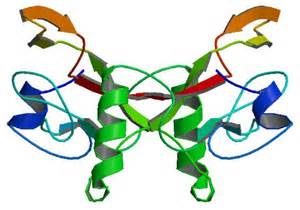Transforming growth factor-beta(TGF- beta)

There is a cell called TGF-beta protein, both to curb the formation of cancer, but also promote the radical growth of cancer cells. How does it do that? This has been an unsolved mystery in cancer biology. Recently, the University of Michigan Comprehensive Cancer Center found that a key gene called Bub1 may be able to explain the two contradictory functions of TGF-beta protein, is also expected as a potential therapeutic target. The relevant papers are published in the recent “Science and Signals”.
TGF-beta is a tumor suppressor, which is essential for the cell to be examined for its normal growth, but at some point its function becomes uncontrolled and becomes a tumor-promoting factor that fosters Cell aggressive growth, promote cancer spread. The researchers found that Bub1 gene is a key gene regulating TGF-beta receptor.
“The data show that Bub1 is involved in the receptor, which we did not expect,” says Onavaz Rehamtura, deputy director of the Center for Molecular Imaging at the School of Medicine. “Bub1 plays a role in cell division, and this is the first time it has been linked to TGF-beta, which we think might explain the paradoxical role of TGF-beta in the cell – both as a tumor-promoting factor and as a tumor Inhibitory factor.
The team at the University of Michigan has developed a method to screen for genes that regulate TGF-beta receptors, according to a report published online Monday. They screened 720 genes from the human genome for resistance to lung cancer and breast cancer cells, found Bub1 is also in which, but also in the TGF-beta signal plays a big role. Bub1 binds to the TGF-beta receptor and causes it to “open” aggressive cell growth. When the researchers stopped Bub1, the TGF-beta pathway was completely shut down.
TGF-beta plays an important role in cells with aggressive growth characteristics, and the researchers have demonstrated that Bub1 is highly expressed in many different cancers. If you develop a drug targeting Bub1, it may impact a variety of cancer. A compound targeting Bub1 has been developed but is not yet ready for human testing. Initial laboratory experiments showed that a Bub1 inhibitor could target Bub1 very clearly without damaging the rest of the cell.
“If you can see the gene expression in cancer, the expression level of Bub1 in the top 5 or less, and its expression level and the patient’s lung cancer and breast cancer, but we do not know why.” Now, we know The relationship between them is a step closer to closing the cycle, “says Onavaz Rehamtura.
Leave a Reply